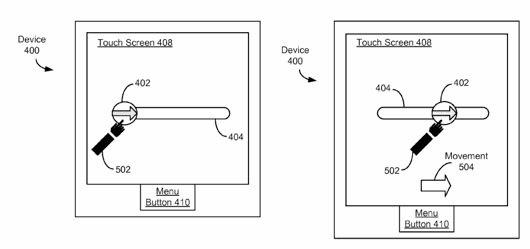Apple Blasts Google For Re-Classing iPhone Tech As "Standard"
Google is pushing a broadening of essential standards to encompass ubiquitous features like multitouch, much to the consternation of Apple, which insists its R&D is its own "magical" thinking and not for general use. In a letter to the US Senate Judiciary Committee, Google argues that just as there are certain standards-essential technologies – such as those around 3G connectivity – that have become ubiquitous, so there are common functionality or interface elements that have become all but standardized thanks to the multiplicity of implementations. Unsurprisingly, AllThingsD reports, Apple is far from convinced, and sees Google's suggestion as an attempt to raid its own well-stuffed patent portfolio.
Standards-essential patents currently include technologies related to connectivity, video playback and other functionality: technologies that have become universally settled upon, and as such those which hold patents used by those standards are obligated to license out their use under so-called FRAND (fair, reasonable and non-discriminatory) terms. In contrast – and unfairly, Google argues – there are an increasing number of technologies which, while not traditionally considered standards-essential patents (SEPs), have become so commonplace that they could be roughly considered the equivalent.
"While collaborative [Standards Setting Organizations (SSOs)] play an important part in the overall standard setting system, and are particularly prominent in industries such as telecommunications, they are not the only source of standards. Indeed, many of the same interoperability benefits that the FTC and others have touted in the SSO context also occur when one firm publishes information about an otherwise proprietary standard and other firms then independently decide (whether by choice or of necessity) to make complementary investments to support that standard in their products. ... Because proprietary or de facto standards can have just as important effects on consumer welfare, the Committee's concern regarding the abuse of SEPs should encompass them as well" Kent Walker, General Counsel, Google
In Google General Counsel Kent Walker's view, just as there are hefty penalties involved for those companies believed to be demanding disproportionate licensing fees for the use of FRAND patents, so should there be more controls over licensing of near-ubiquitous technologies which have dissipated through many of the devices we use daily. That could include multitouch, common UI paradigms such as slide-to-unlock or list-scroll-bounce, and other elements.

Those elements, though, have all been the subject of ardent litigation, with Apple particularly strident in protecting the technologies it has used in the iPhone and iPad, and patented accordingly. In a response from Apple General Counsel Bruce Sewell, the lawyer argues that there is a fundamental difference between standardized technology and product-differentiating technology: the former is a way for individual devices to ensure interoperability at a core functionality level, such as wireless connectivity and making voice calls, while the latter is a way for companies to compete by offering a more comprehensive, imaginative or polished device.
"The capabilities of an iPhone are categorically different from a conventional phone, and result from Apple's ability to bring its traditional innovation in computing to the mobile market. Using an iPhone to take photos, manage a home-finance spreadsheet, play video games, or run countless other applications has nothing to do with standardized protocols. Apple spent billions in research and development to create the iPhone, and third party software developers have spent billions more to develop applications that run on it. The price of an iPhone reflects the value of these nonstandardized technologies — as well as the value of the aesthetic design of the iPhone, which also reflects immense study and development by Apple, and which is entirely unrelated to standards" Bruce Sewell, General Counsel, Apple
As Sewell sees it, some companies – Motorola is particularly mentioned – are trying to use their standards-essential patents to coerce Apple into either paying above the odds for the use of such technology, or to pressure it into licensing product-differentiating technology.
With the current state of technology patents and FRAND licensing under the microscope, we're likely to see more back-and-forth between Apple, Google and others before we get anywhere near IP reform. Still, if Google was hoping Apple would simply sit back and let it declare elements of iOS common-ground, it seems it will go away disappointed.
